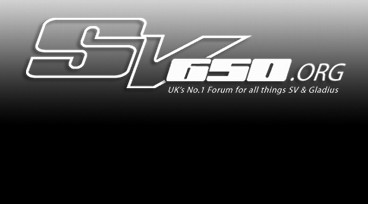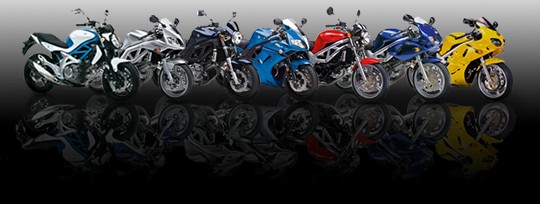 |
 |
| Bikes - Talk & Issues Newsworthy and topical general biking and bike related issues. No crapola! Need Help: Try Searching before posting |
 |
|
|
Thread Tools |
|
|
#21 | |
|
Guest
Posts: n/a
|
Quote:
Liam |
|

|
|
|
#22 | |
|
Guest
Posts: n/a
|
Quote:
|
|

|
|
|
#23 |
|
Guest
Posts: n/a
|
So how do they directly compare?
. |

|
|
|
#24 | ||
|
Member
Mega Poster
Join Date: Jul 2003
Location: Warwickshire
Posts: 2,804
|
Quote:
Pump = (R+M)/2 For most commercial fuels there's usually around 7 to 9 numbers difference between them (MON = RON-8 typical), so Pump = RON-4 give or take a bit. It varies from fuel to fuel a little. The different numbers both are a comparison to a mixture of iso-Octane and n-Heptane (so 95 "Octane" behaves like a mixture of 95% iso-Octane and 5% n-Heptane), but the test conditions (speed/temp/load etc)are different so the 2 tests come up with different numbers. Why, you might ask? Well, it depends whether you're running constant light load or transients into heavy load etc as to how the particular fuel behaves, and there isn't one single test which will characterise the fuel, so there are several different tests. The USA habit of describing fuel as (R+M)/2 is actually more useful in real life than simply RON. -------------------- You can't keep trouble from coming, but don't give it a chair to sit on. |
||
|
|

|
|
|
#25 | |
|
Moderator
Mega Poster
Join Date: Nov 2003
Location: The exiles of Kent
Posts: 2,184
|
Quote:
The lower the octane number, the more likely you are to get premature detonation. Low octane fuels, such as cheap motor-gas require less energy to detonate, and may do so in a hot high-compression engine, such as a motorbike. To avoid this pre-ignition, you should up the octane rating of your fuel. Higher octane fuel requires more energy to ignite, and can withstand higher pressures and temperatures before detonation - this ensures that detonation occurs only when the spark plug fires. If you want to look after your SV, with it's compression ratio of 11.5:1 - then you should be trying to get a fuel with Octane levels in the 90's, rather than the low compression US fuels that most American cars are designed to run on. Just a friendly word of advice.
__________________
SV650 K3 - Gone. Now a member of the SV650.org Kawasaki brigade! |
|
|
|

|
|
|
#26 | |
|
Guest
Posts: n/a
|
Quote:
Or look here. Ha, embee's been along already - I shall now read and learn. |
|

|
|
|
#27 |
|
Moderator
Mega Poster
Join Date: Nov 2003
Location: The exiles of Kent
Posts: 2,184
|
MON and RON are basically the same test, but basically completed to different specifications.
MON tests higher in the rev range than RON, on which to base the average Octane level. Generally speaking, they produce the same kind of figures, except when you get into the higher Octane levels where high compression engines will sap more power from the fuel - giving a higher octane ranking. Comprende?
__________________
SV650 K3 - Gone. Now a member of the SV650.org Kawasaki brigade! |
|
|

|
|
|
#28 |
|
Member
Mega Poster
Join Date: Jul 2003
Location: Warwickshire
Posts: 2,804
|
I'll just throw in a little extra nosegay here, since we're on the subject, and the terms get bandied about.
Normal combustion - the flame starts at the spark plug, the "kernel" or small ball of fire slowly grows to a threshold size when the flame front will then progress at a more or less characteristic speed across the combustion chamber in a nice progressive controlled manner. Flame speeds are actually in the range of a few tens of metres per second. It is not useful to describe it as an explosion. A normal burn will take up maybe 30-45degrees of crank rotation (depends on load, temperature, mixture preparation, A/F ratio, exhaust gas dilution, crank speed to some extent) Detonation - aka knock, pinking (although very strictly speaking there are differences between knock and detonation, but that's another story). This is a phenomenon where once the burn has started at the plug normally, the pressure and temperature increase as the burn gets going will cause mixture ahead of the flame front to chemically change into substances which will spontaneously react without needing the flame. You then get pockets of mixture going off very rapidly before the flame arrives (much more akin to an explosion, reaction rates can be an order of magnitude faster than a normal burn). Noise is characteristically in the 6kHz (or harmonics, 12kHz etc) range, so has a similar sound in most engines. Mild detonation causes little harm though isn't recommended, severe cases cause component temperatures to increase and ultimately can cause fatigue cracking of piston ring lands (usually the second land which supports the top ring). It is the properties of a particular fuel which determine how easily it undergoes these transformations that give it its Octane rating. Pre-ignition - totally different to detonation. As the name suggests, the mixture starts burning before the spark occurs, usually caused by an excessively hot component (most commonly a spark plug of the wrong grade, loose plug, badly seating exhaust valve etc) or glowing carbon deposits. Because the burn starts early, the pressure and temperatures rise dramatically as heat is released during the compression stroke. This puts massive loads and temperature into pistons, which can literally melt, or expand so much they get too big for the bore and seize. Failure is usually in seconds, and if you're lucky puts a little hole in the piston crown, if not the whole piston and bore start to weld together and look a total mess. Of course this massive heat input and temp/pressure rise will also result in disastrous levels of detonation and sounds pretty awful usually. ----------------------------- troubles are like babies, the more you nurse them the bigger they grow |
|
|

|
|
|
#29 | |
|
Guest
Posts: n/a
|
Quote:
81p/litre works out about $5.50/US Gallon. Considering that it's going to run out in a few years, I think that it's far too cheap in the US. |
|

|
|
|
#30 |
|
Moderator
Mega Poster
Join Date: Nov 2003
Location: The exiles of Kent
Posts: 2,184
|
Yeah it's more like $5/US Gallon mark...
However, aviation jet fuel is the one that should be more expensive. By international agreement it has no tax imposed on it, and retails at about half that, but is used in massive quantities.
__________________
SV650 K3 - Gone. Now a member of the SV650.org Kawasaki brigade! |
|
|

|
 |
|
|
 Similar Threads
Similar Threads
|
||||
| Thread | Thread Starter | Forum | Replies | Last Post |
| Petrol in the air box | andyharding | SV Talk, Tuning & Tweaking | 5 | 26-03-08 10:43 PM |
| petrol tap | hovis | Bikes - Talk & Issues | 6 | 13-09-07 07:58 AM |
| Old Petrol/Oil | Grinch | SV Talk, Tuning & Tweaking | 19 | 25-04-07 06:10 PM |
| Petrol - Which One? | krhall | Bikes - Talk & Issues | 36 | 25-04-07 08:57 AM |
| Out of Petrol?! | Jabba | Idle Banter | 15 | 15-07-06 08:29 AM |